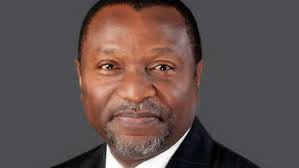The Federal Government has inaugurated the Technical Working Group for the Nigeria Aid Transition Plan (TWG-NATIP), with a mandate to develop a comprehensive strategy for addressing the funding gap that may arise with the scaling down of development partners’ funding of projects in the country.
Budget and National Planning Minister, Senator Udoma Udo Udoma, who inaugurated the group, explained that the initiative was in line with the present administration’s agenda to drive use planning as the bedrock of its developmental strategy and be pro-active in the face of emerging challenges.
The minister, who gave these hints in a statement by his Media Adviser, Mr. Akpandem James, alluded to the fact that the country’s relationship with international development partners was evolving due to Nigeria’s recent categorization as a middle-income country, with the attendant implications for the country being at risk of losing access to some concessionary funding windows.
He stated: “The funding gap created by the withdrawal of donor funding to critical programmes of government would therefore require additional government expenditure to cover the shortfall. In view of the potential fiscal and other implications of these changes, including larger debt burden to ensure sustainable development in Nigeria, it is important for us to seek an orderly aid transition.”
Appreciating the huge funding supports Nigeria had enjoyed from development partners over the years and the impacts of such interventions on the economy, Udoma pointed out that Nigeria needed to be proactive and plan for how to bridge the funding gap in view of the decline in donor funds.
The minister commended the ministries, departments and agencies (MDAs) involved in the work already being done to ensure effective management of development assistant programmes in the country and charged the TWG to consolidate on the efforts and develop a comprehensive strategy for addressing the challenge of aid reduction in the country.
According to the minister, the TWG must recognise efforts already being made by MDAs as well as carry out critical review where there is none; including reviewing all development partners’ funding arrangements and recommending a credible and realistic path towards ensuring a smooth graduation from those under transition as a strategic option.
Udoma stated further that the strategy would serve a dual purpose with the inclusion of a credible decision framework for mainstreaming affected programmes into the budget, noting that “it would also serve as a medium to make a case for delay in aid transition where feasible.”
By its mandate, the TWG-NATP, which has the Director General, Budget Office of the Federation, Mr. Ben Akabueze, as chairman will report to the minister and be responsible for the various tasks related to the development of the transition plan.
Specifically the group is mandated to document “an overview of the development partner network in Nigeria; identifying all development partner-assisted programmes with focus on key sectors such as education, health, social development and agriculture
“Also, prepare an analysis of the potential impact of the withdrawal of critical development partner funding on socioeconomic outcomes and fiscal indicators.
“Make a case for delayed transition from development partner programmes utilising the analysis in (b) and other compelling information; and prepare an Aid Transition Plan for Nigeria.
Members of the TWG are drawn from the Ministry of Budget and National Planning, Ministry of Finance, Ministry of Health, Ministry of Education, Ministry of Agriculture, National Bureau of Statistics (NBS) and Debt Management Office (DMO).
The minister stressed that in order to achieve the objectives of NATP, members must act as representatives of their MDAs and participate in the relevant activities.






